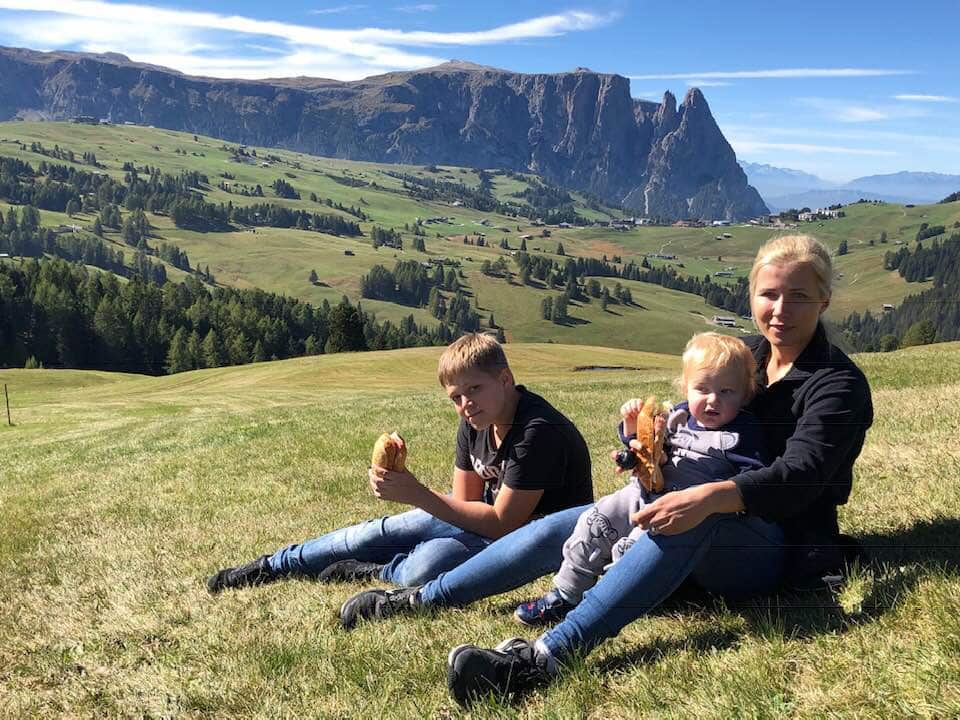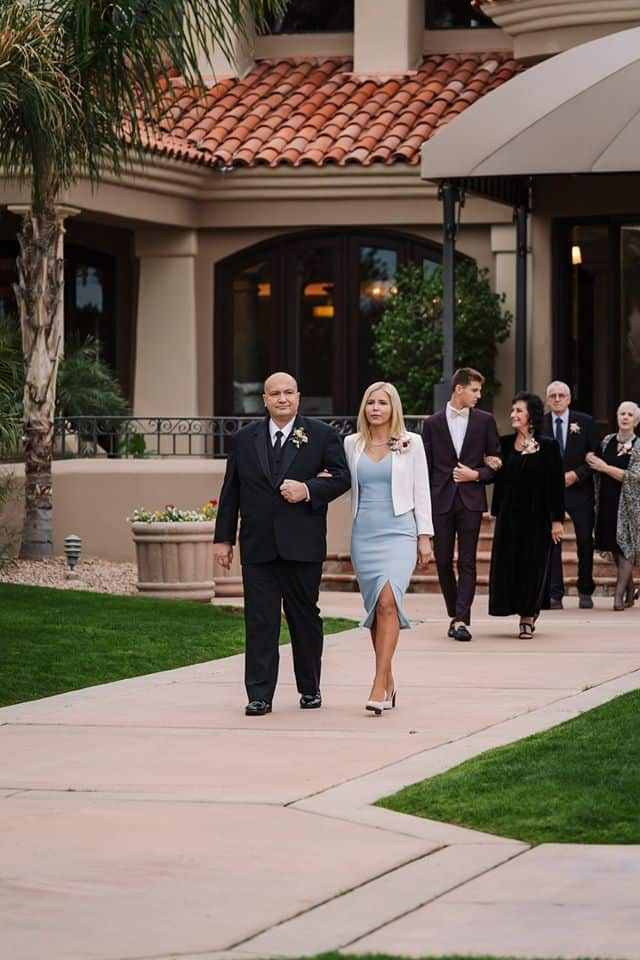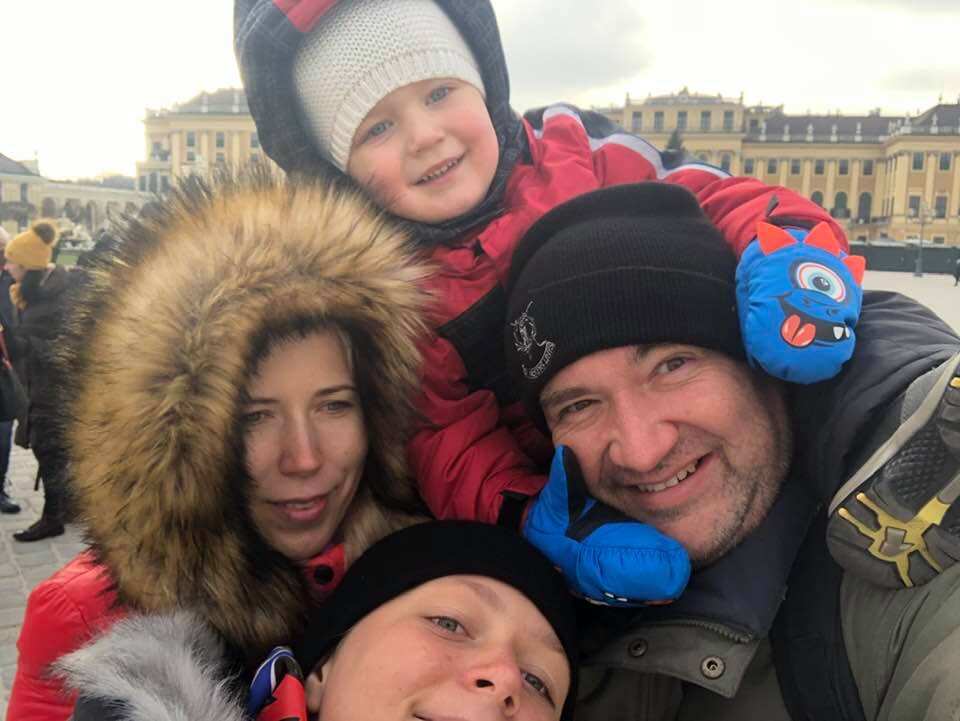The only thing different about her is that she can’t see. She was born with a condition called congenital retinal degeneration and optic nerve atrophy. But that couldn’t stop her from living her life the way she wants.
She has a YouTube channel – ‘Born Blind to Inspire!’ – where she uploads the vlogs that are videos of herself performing routine tasks, such as baking a cake, washing her guide dog or of her fitness session.
The 34-year-old mother says she wants to inspire others – whether they can see or not – to live life to the fullest.
“I also want to tell the world that blind people are no different, they just see the world differently,” she says.
Mrs Itsenko-Mahler moved to Australia seven years ago with her elder son after marrying an Australian doctor whom she first met online, who then undertook a 30-hour air journey to Ukraine for their first date.
“Can you imagine it? He couldn’t even be sure who was he flying to. I could be a scammer or someone like that.”

They decided to get married and decided to have a child. That decision, she says, wasn’t easy to make.
“Many blind people, including myself, have a high probability of transmitting an eye disease to their child. And I, of course, wouldn’t wish that on my worst enemy. Therefore, we thought for a long time before deciding,” she told SBS Russian.
Now her elder son is 13 and the younger on is three and they both can see. She devotes most of her time caring for her sons.
She involves them in her videos with her husband behind the camera. She says she doesn’t find raising children particularly difficult because of her experience as a visually impaired person.
“The parent should try to be as independent as possible, not to give the child unnecessary responsibility. Then the child will not be shy of the parent’s blindness,” she says.

She says she doesn’t find raising children difficult because she’s used to working in the house independently. However, there’s one thing that she misses the most – being able to see her children.
“To be honest, no matter how you try to seem and feel cheerful and joyful, the fact is that you can’t see your kid’s face. You can’t see how he smiles to you, how he winks at you, shows his tongue.
“I would give half my life to see my children grow, how they smile,” Mrs Itsenko-Mahler says.
She uses Braille version of chess, Monopoly board game, cards and books to play with her sons.
Mrs Itsenko-Mahler is an active person. With funding from the National Disability Insurance Scheme, she gets to access the gadgets and tools for blind people that allow her to live her life as normally as she can.
However, her it wasn’t always so easy for her to access the support she needed when she was in Ukraine where she got two degrees, as a translator of English and German languages and as a massage nurse. She says there were not tutors for blind people.
“Studying in a university in Ukraine is a pretty difficult process for blind people. I still shudder at the memories. I can say there is no help, no special books. (...) All the books were printed, we had no e-books; so I had to scan paper books, then rewrite them on Braille,” she recalls.

She was married at that time and she says these difficulties caused her marriage to fall apart.
“I got married very early when I was 19. And I became a mother when I was 20. We both studied at the university, so it was very hard for us. I think that’s why we got divorced, we couldn’t go through it.”
But starting a relationship again wasn’t easy. So, she took to an online dating service where she could talk to a person first and then explain that she was blind.
“Unfortunately, 98 per cent of the men said ‘goodbye’ after coming to know that I was blind. It was very painful but I’m not a person who gives up. I kept trying and finally, I met a man who saw in me not my disability, but a good, interesting, beautiful woman and a good companion.”
She says moving to Australia has changed her life.
"I was able to receive a number of services for the blind that didn’t exist in Ukraine. For example, I could get free mobility lessons to learn new routes to travel to destinations safely and efficiently. I became a lot more independent than I had ever been before.
Now she travels across Australia with her family and lives a life that she always wanted to live.
